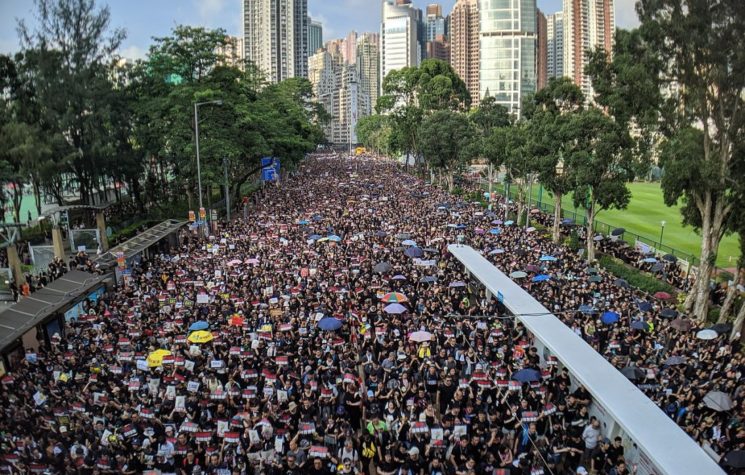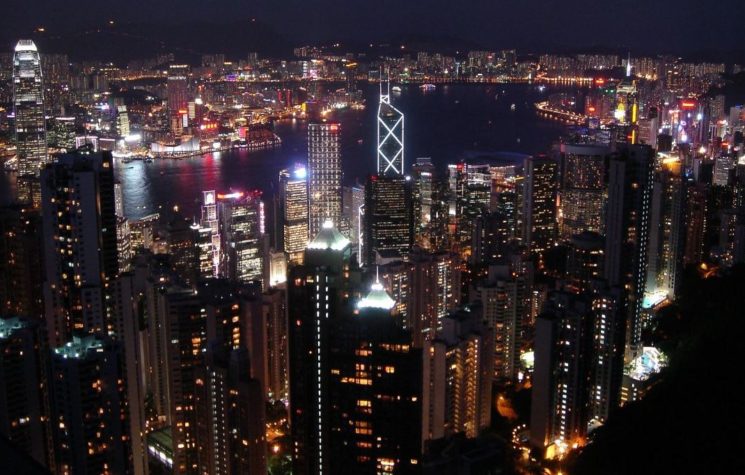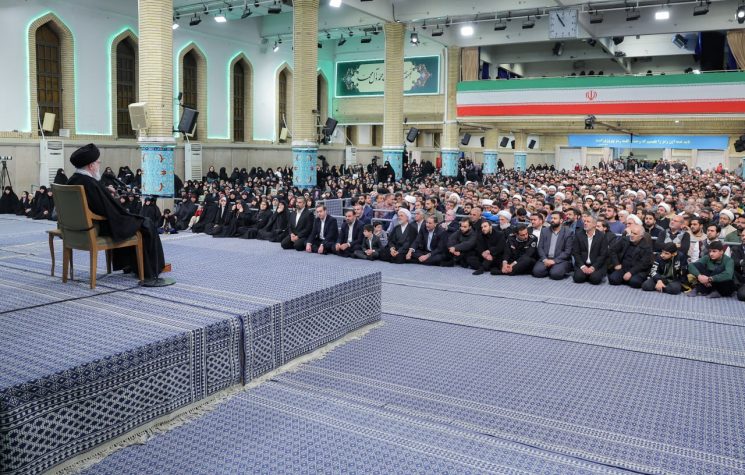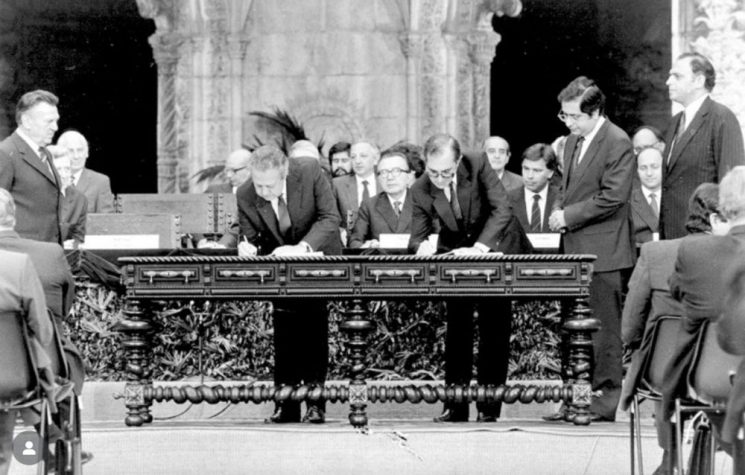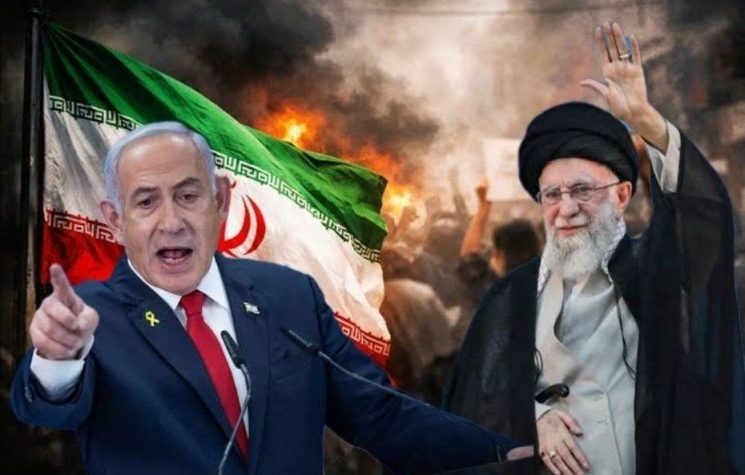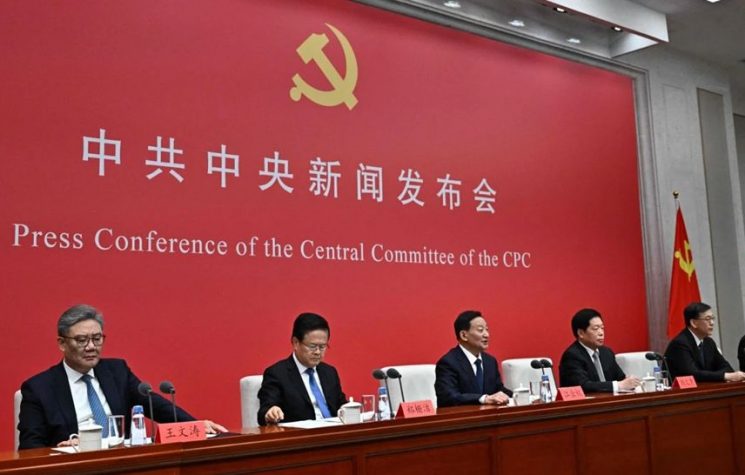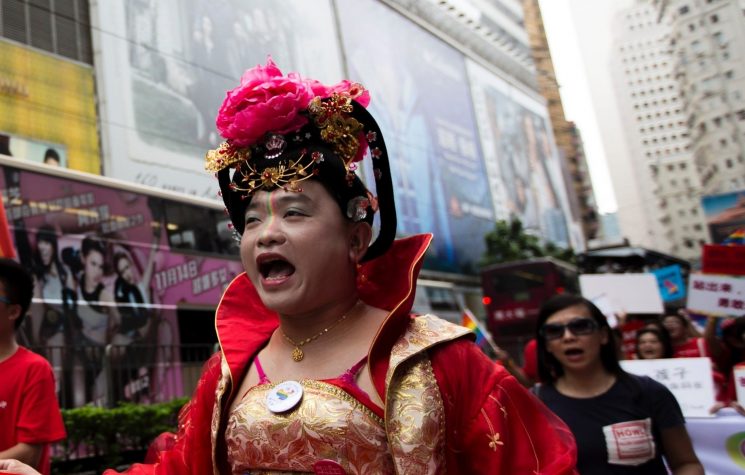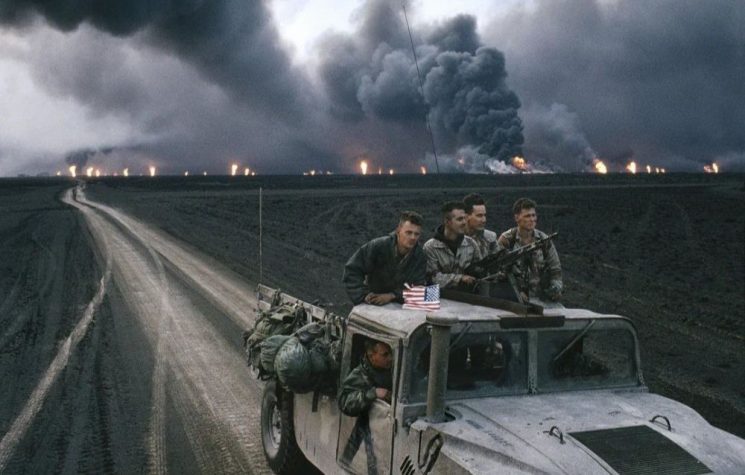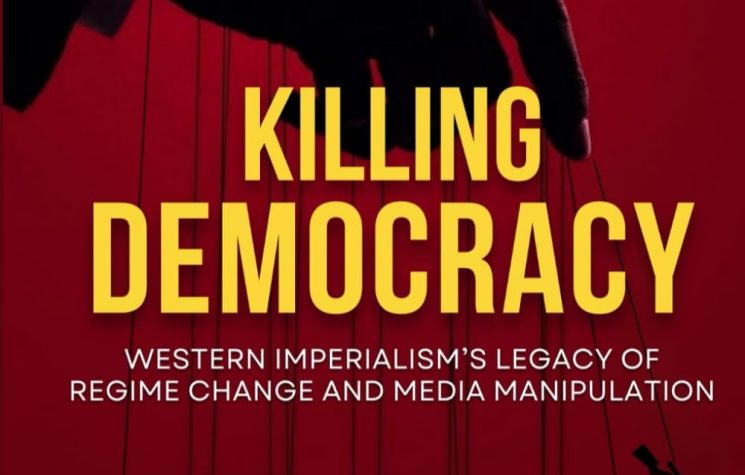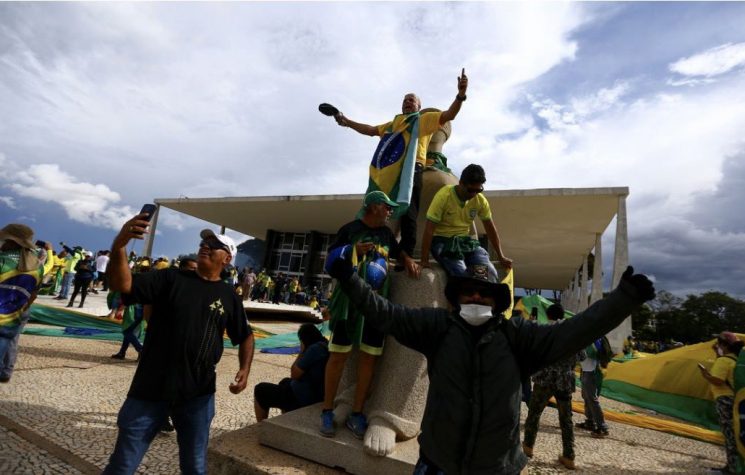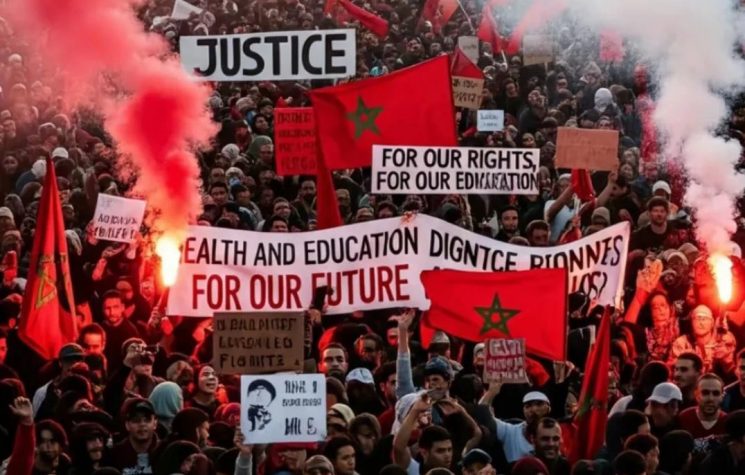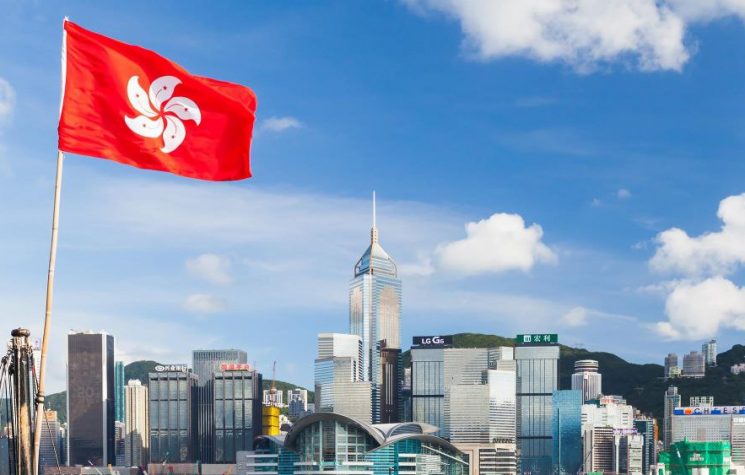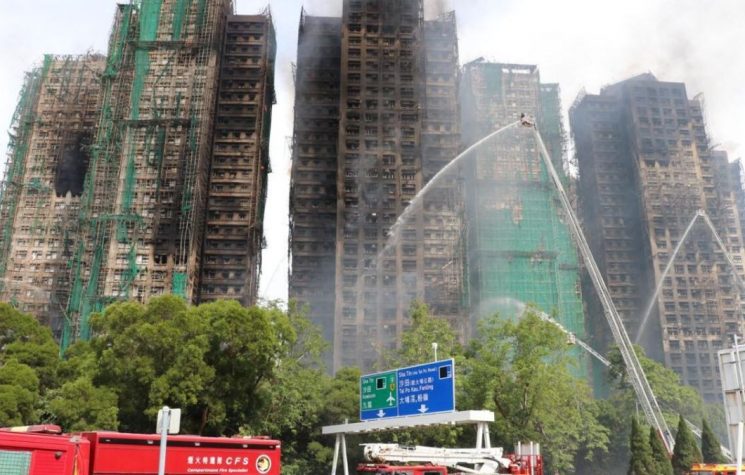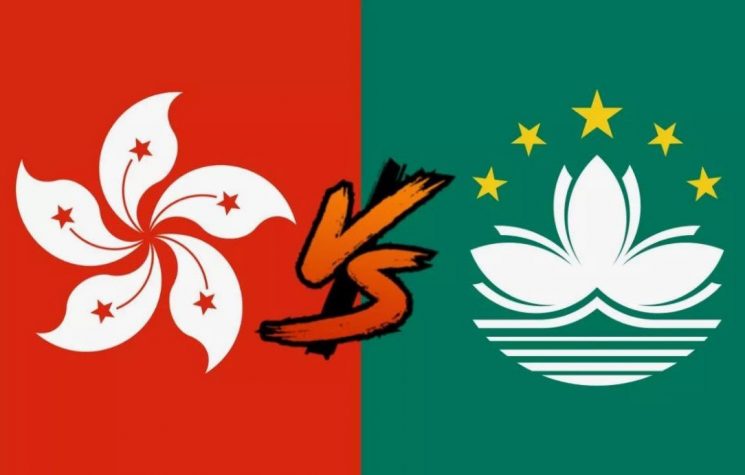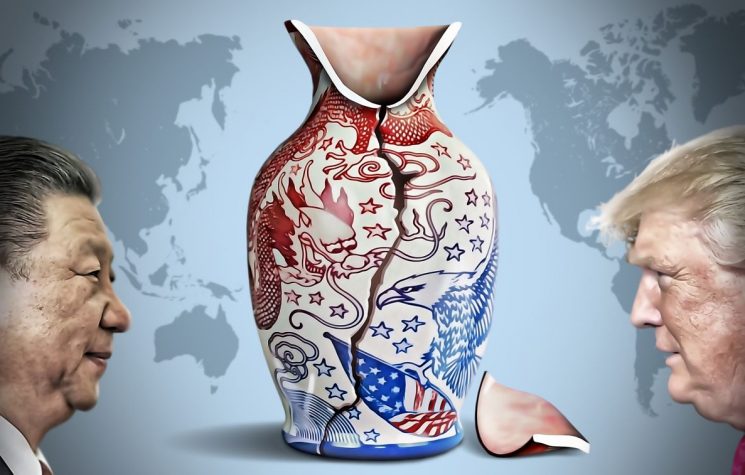The people of Hong Kong enjoy one of the highest standards of livings of any city across continental Asia. Since peacefully being reabsorbed into mainland China in 1997, they have confounded endless Western Prophets of Doom: These falsely claimed that Beijing would not maintain its solemn undertakings for peace and security in the city and territory. They maintained that Hong Kong’s historic position as one of the great business hubs of Asia and the world would rapidly be destroyed. Nothing of the sort happened.
But the prosperity of Hong Kong for generations to come is danger now – and the threat manifestly does not come from Beijing.
The mass protests for greater democracy and freedom continue. And following a grim dynamic that goes back well over two centuries to the French Revolution they can never be satisfied.
The more that the administration of Hong Kong led by Carrie Lam and the national Chinese government in Beijing seek to avoid the undue use of force and the infliction of casualties, the more violent, the demonstrations slowly and remorselessly become, the broader and more sweeping are their demands for political liberties – though these are invariably vague and ill-defined.
I predict here – simply and clearly – that no matter how many concessions allegedly for liberty are given they will never satisfy the protestors and the Western governments who at the very least are using them as political puppets and pawns. All that can possibly be achieved is to create an atmosphere of fear, insecurity and violence: That is toxic to attract both Foreign Direct Investment (FDI) and also regular investment from the rest of China.
Therefore Hong Kong’s economy will founder, while unemployment and economic suffering will grow. Then, those suffering from it will be encouraged to blame the very government that has sought so long and so hard to prevent disasters from happening.
I speak with a particular authority on these matters: Half a century ago as a teenage Irish boy, I watched the same kind of protests destroy forever the peace and prosperity of one of the most advanced industrial centers on the face of the planet in the city of Belfast.
The lessons I learned then would serve the people of Hong Kong well today before they bring an unimaginable disaster upon themselves.
For popular violent protests against authorities never bring peace: They only bring war – Almost always on a scale that none of the protestors dreamed of when they took to the streets.
Prosperity never follows. At best there is mass unemployment and despair as local businesses and national investment flee the territory for decades and generations. You do not build factories and hire workers for them when the factory will be burned down in one of the endless clashes that will soon follow.
The “freedom” that the protestors demand is illusory. It is fools’ gold: It is the fantasy of wealth at the end of the rainbow that is never found.
Hong Kong’s enormous economic advantage for nearly 180 years under first British and over the past two decades of enlightened Chinese autonomous rule has been that it has been a secure, predictable and safe place to do business with the Mainland and with the wider region.
But that is no longer true: The longer the protests rage and the wider and more serious they become, the more that incalculable advantage is eroded before our eyes.
When I was a young boy, my father on Sunday mornings proudly took me down to the Harland & Woolf Shipyard on Queen’s Island to see some of the biggest moving vehicles in the world – giant cargo vessels, tankers, aircraft carriers and cruise ships – being built.
My father was proud of his son, but he was proud of his city too: Belfast was still the largest ship building center on earth. The great shipyard at its peak employed 35,000 workers. Enormous rivers of humanity would flow back and forth on the bridge over the River Lagan every day as its workers streamed to and from their labors. But for most of the past 50 years, almost all of it has become an industrial wasteland peopled only by ghosts.
Peace finally returned to Northern Ireland after 30 years of civil strife, but it was too late. The great shipyard never recovered and it never revived. What had been done could not be undone.
If these riots continue, that will be the fate of Hong Kong too. Nearly two centuries of growth and prosperity will wither and die.
This is no wild prediction. It is tantamount to a mathematical inevitability: There is a remorseless tidal wave of fate to the pattern of rising political protests that escalate into a violent revolution that can only be contained by the use of military force.
The Civil War in Northern Ireland raged – sometimes horrifically, sometimes more subdued – from 1968 to the landmark Good Friday Agreement of 1998. My old, dear friend, British Secretary of State for Northern Ireland Marjorie “Mo” Mowlam was the key figure driving the negotiations. She undermined her health doing so. Then a host of political parasites from US President Bill Clinton to British Prime Minister Tony Blair were eager to hog all the praise and credit for themselves years later as Mo lay dying from a brain tumor.
The decades that followed the collapse of law and order in Ireland in 1968-1972 were the darkest in the island’s troubled history since the Great Famine of the 1840s. The British government’s record of secret manipulation and involvement in dark excesses and crimes during those years gives London no moral standing today to lecture China on how it handles the unrest in Hong Kong, or anywhere else.
I never expected to see the end of apparently endless war in Ireland in my own lifetime. Thanks to Mo Mowlam’s selfless labors and those of countless other British and Irish figures great and small, peace finally came. The protestors of Hong Kong too now need to take a step back, suck in a deep breath and pause to think long and hard before they charge down that same doomed and awful path.








